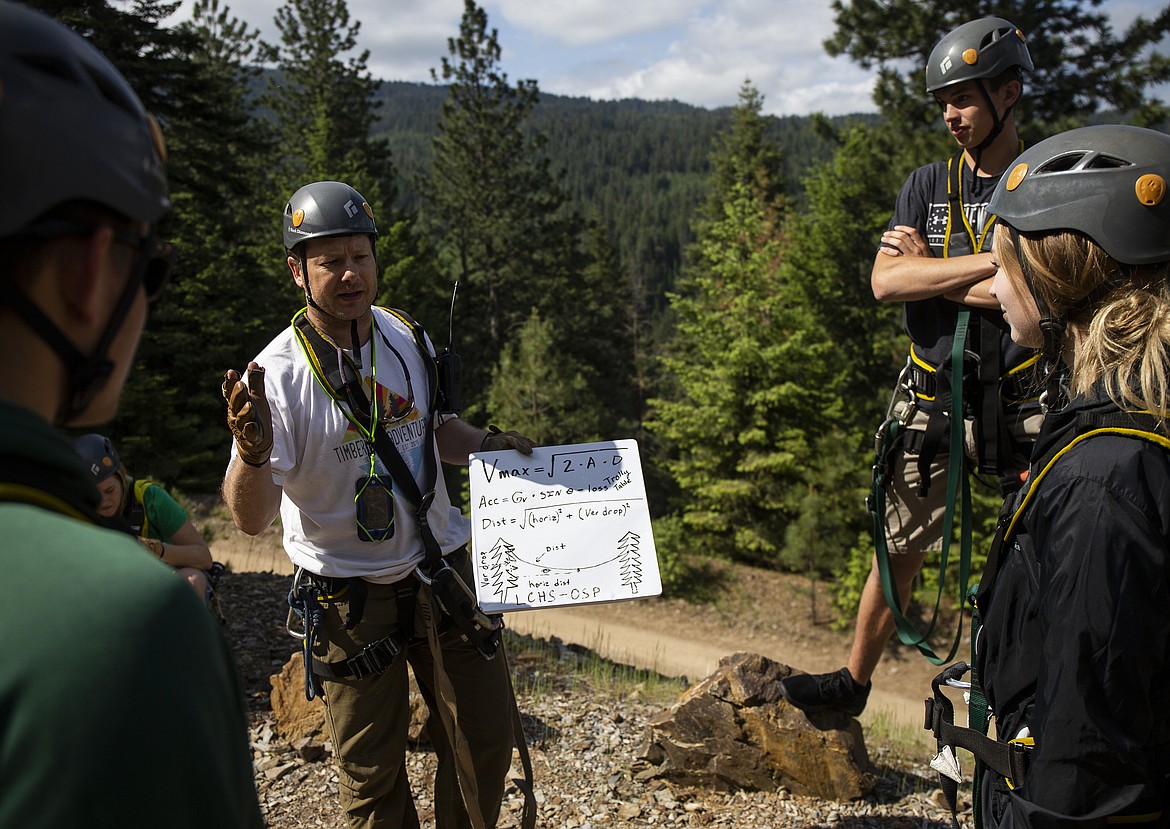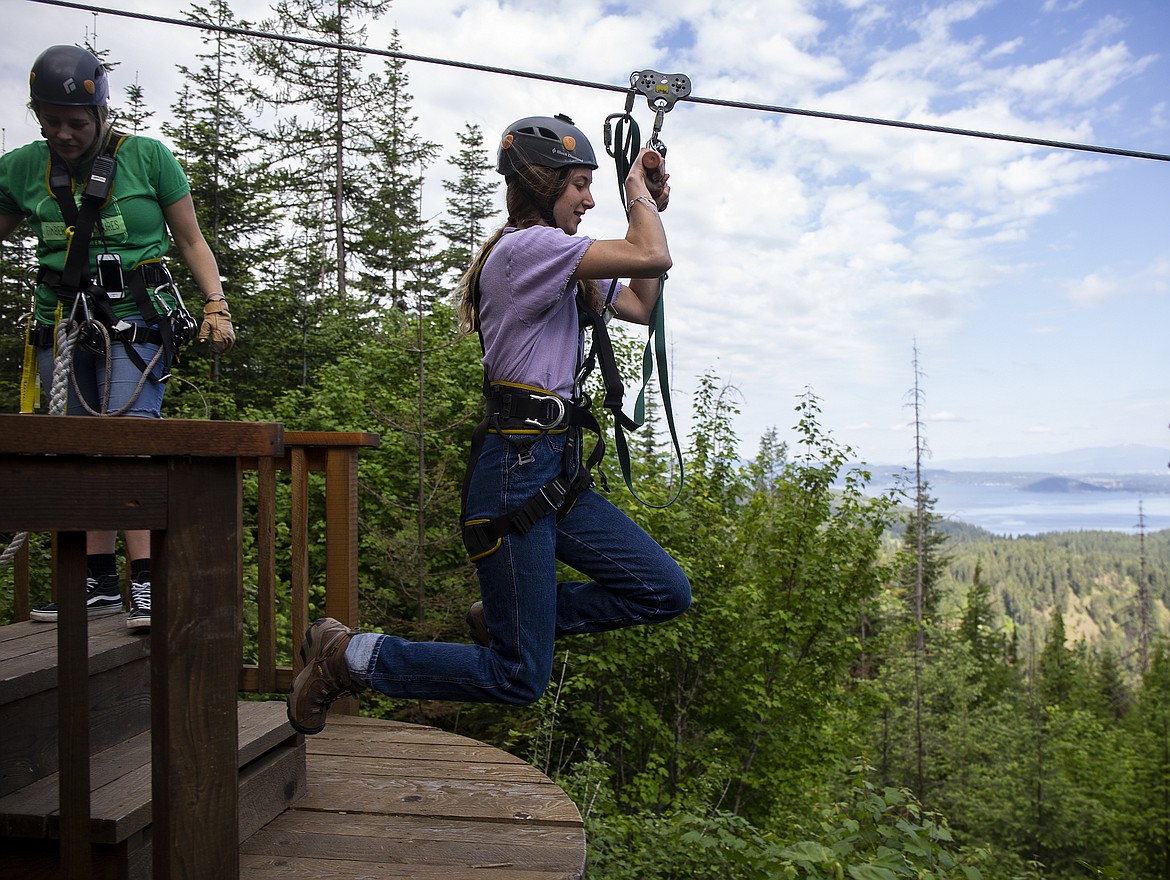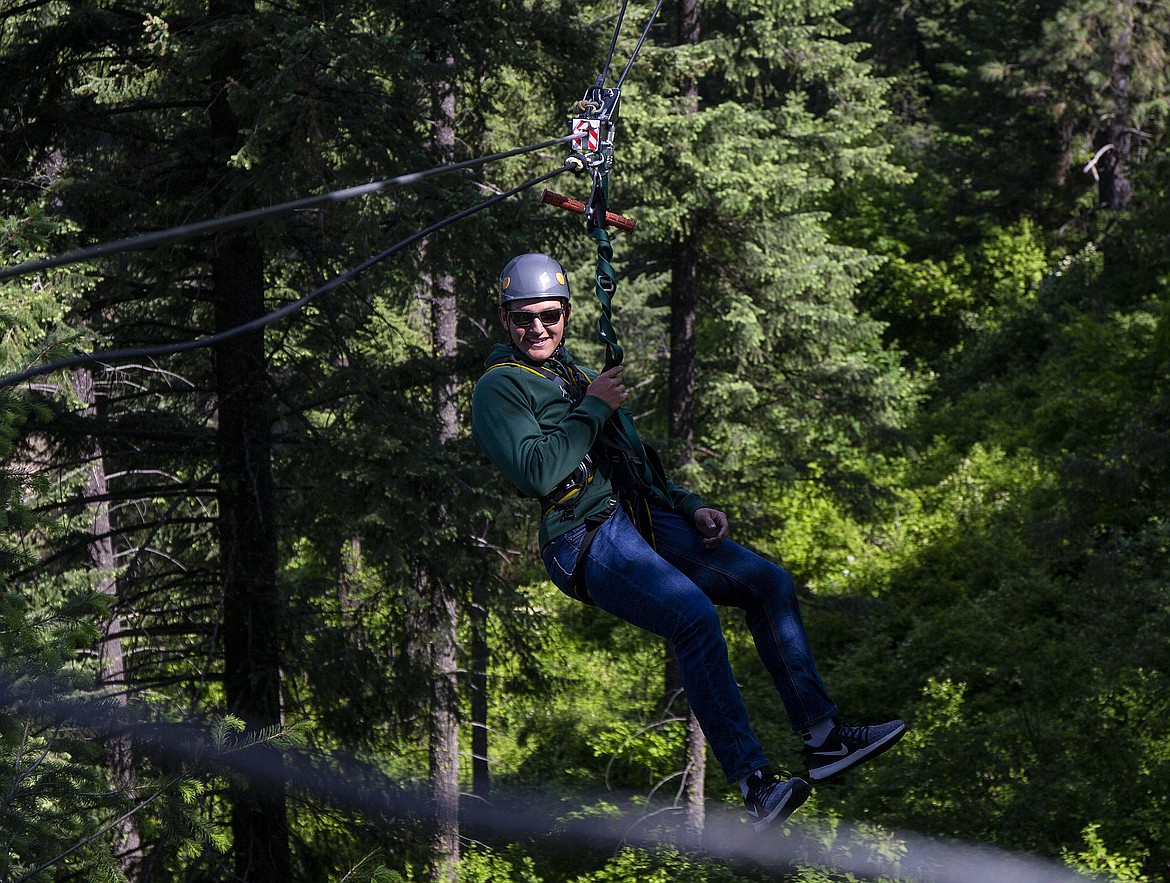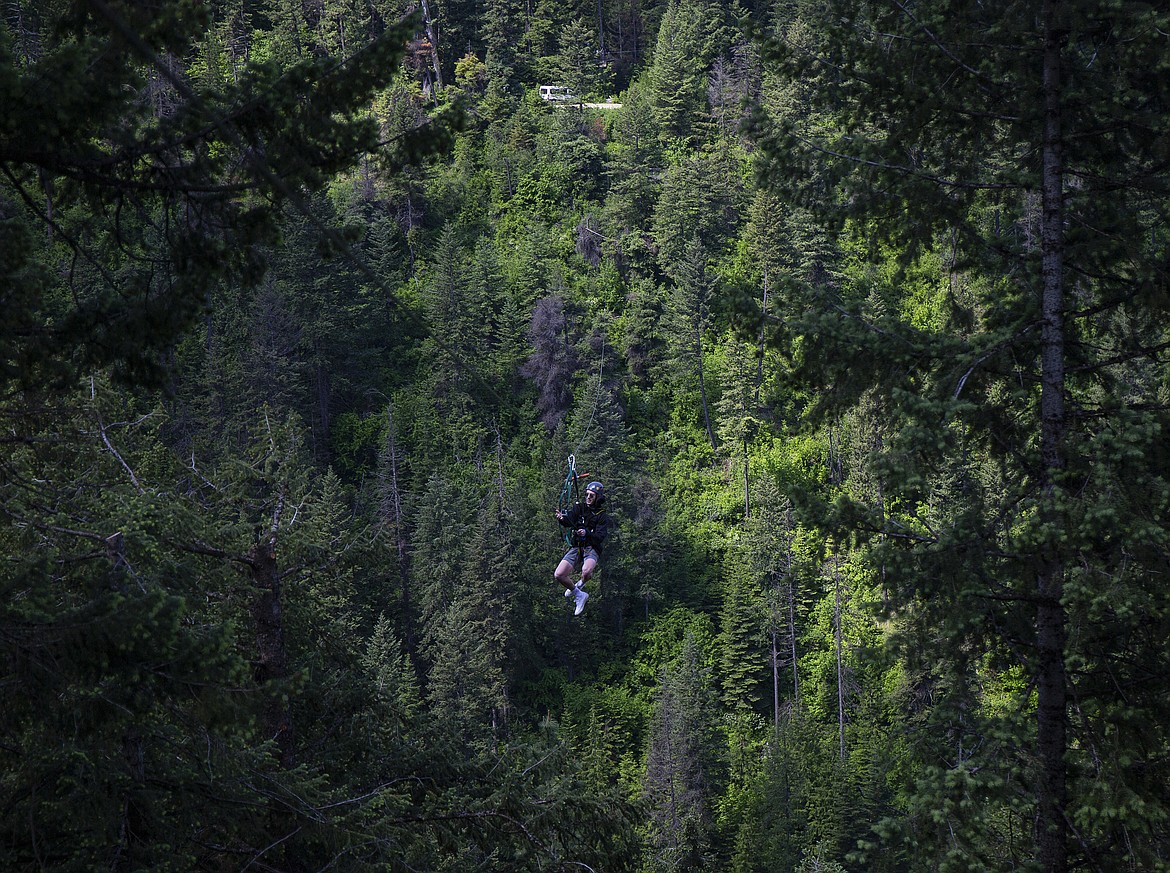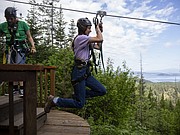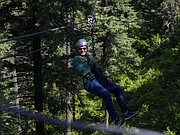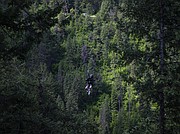Zipping out of the classroom
By MATTHEW GWIN
Staff Writer
COEUR d’ALENE — Remember that kid who always piped up in math class asking when he’d ever use this in “real life?”
Well, as students in Lake City High School’s outdoor studies program (OSP) found out Thursday, applying STEM concepts can be both fun and fundamental.
Forty juniors in the program joined math teacher Matt Werner, environmental science teacher Jamie Esler, history teacher Eric Edmonds, and english teacher Breanna Holmes for a day of zip-lining at Beauty Bay, courtesy of Timberline Adventures.
“It was an awesome opportunity for the students to apply their conceptual knowledge in a practical way,” Werner said, “and they’re thrilled to be out of the classroom doing something active.”
Junior Gunnar Nickerson said he liked how the exercise allowed students to see their curriculum in action.
“It was nice to use our classroom knowledge in a hands-on way, especially for me being a hands-on learner,” Nickerson said.
According to Werner, OSP students make regular excursions out of the classroom where they learn how to use their studies in day-to-day life.
For Thursday’s lesson, students predicted their acceleration and velocity on the zip line course using a formula learned in Werner’s class, and Esler reminded them about sustainable land use of natural resources.
“Most people would think of these as field trips, but really, the classroom is outdoors,” Werner said.
The program began five years ago and accepts 70 juniors annually, who must apply as sophomores. Werner said the ability for students to learn in a unique way helps make the program a success.
“OSP was designed so that we could give kids STEM experiences without pulling them out of school, so to speak,” he said. “All their teachers go with them, so they get instruction from all subjects.”
Werner said the proof was in the pudding — several of his students were able to predict their speeds within three to five miles per hour of their actual velocity, which they found using a Google application as they zipped across the sky.
“They didn’t disappoint,” Werner said. “They were spot-on with their analyses, so as a teacher I was pleased to see they had been paying attention in the classroom.”
The students formed groups of six to eight and took off with a tour guide across the course, which features lines of up to 1,600 feet in length and 400 feet high.
Werner, who also works as a tour guide for Timberline, said students were also taught about how zip line courses affect forest resources and some history of zip-lining.
“We explained to them that zip lines were first developed in the rainforests in Costa Rica so researchers could study the trees without having to climb each one,” Werner said.
Additionally, he said zip line ropes actually strengthen the trees on which they’re located.
“The zip line actually moderately stresses the tree, kind of like your muscles when you exercise, so it’s actually healthy for the tree,” Werner said.
This field trip was part of the OSP students’ capstone to their yearlong interdisciplinary coursework, Werner said.
He also thanked Timberline owner Paul Buttars for allowing the students to access the course for a reduced fee, and Lake City principal Deanne Clifford for her support of the program.

